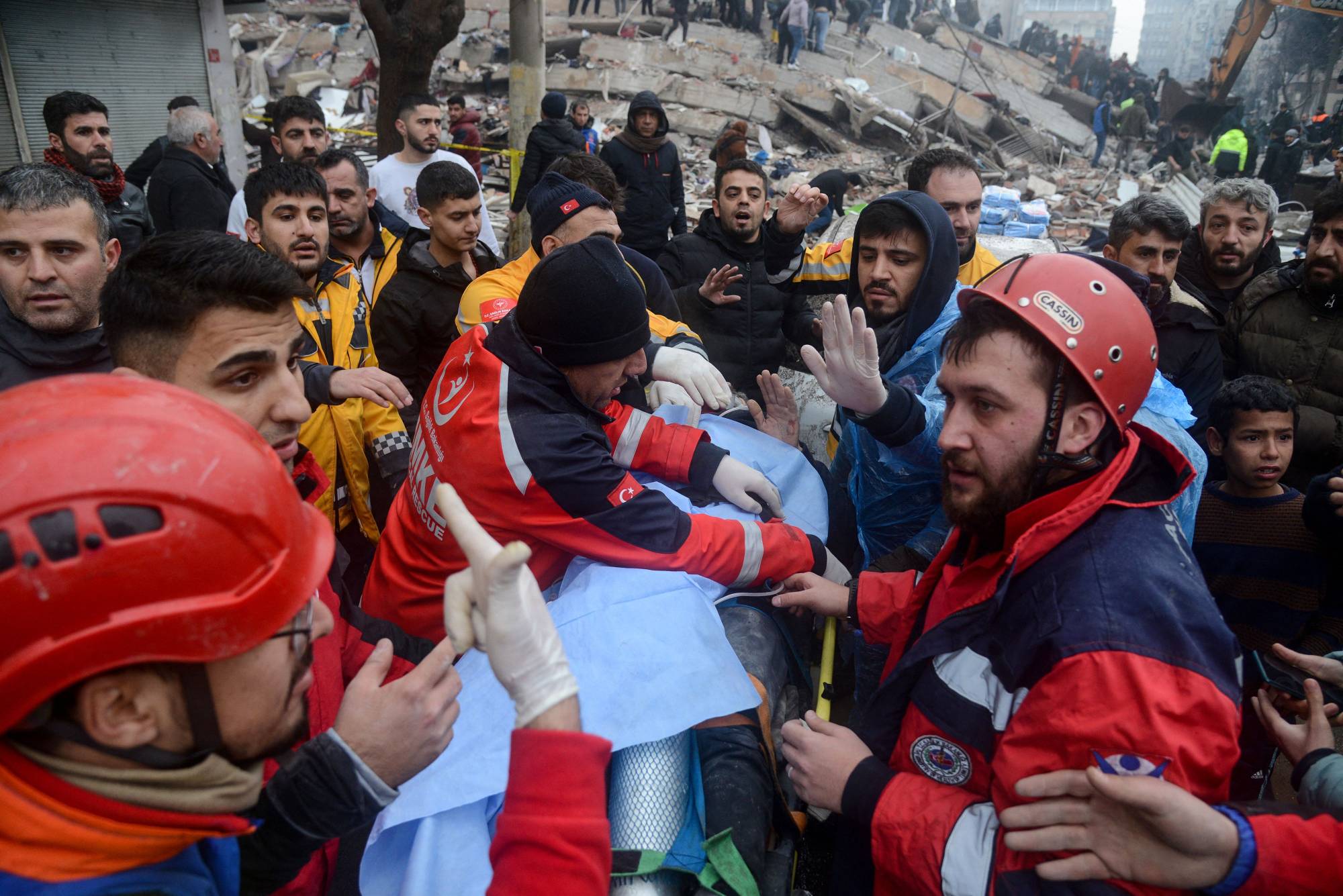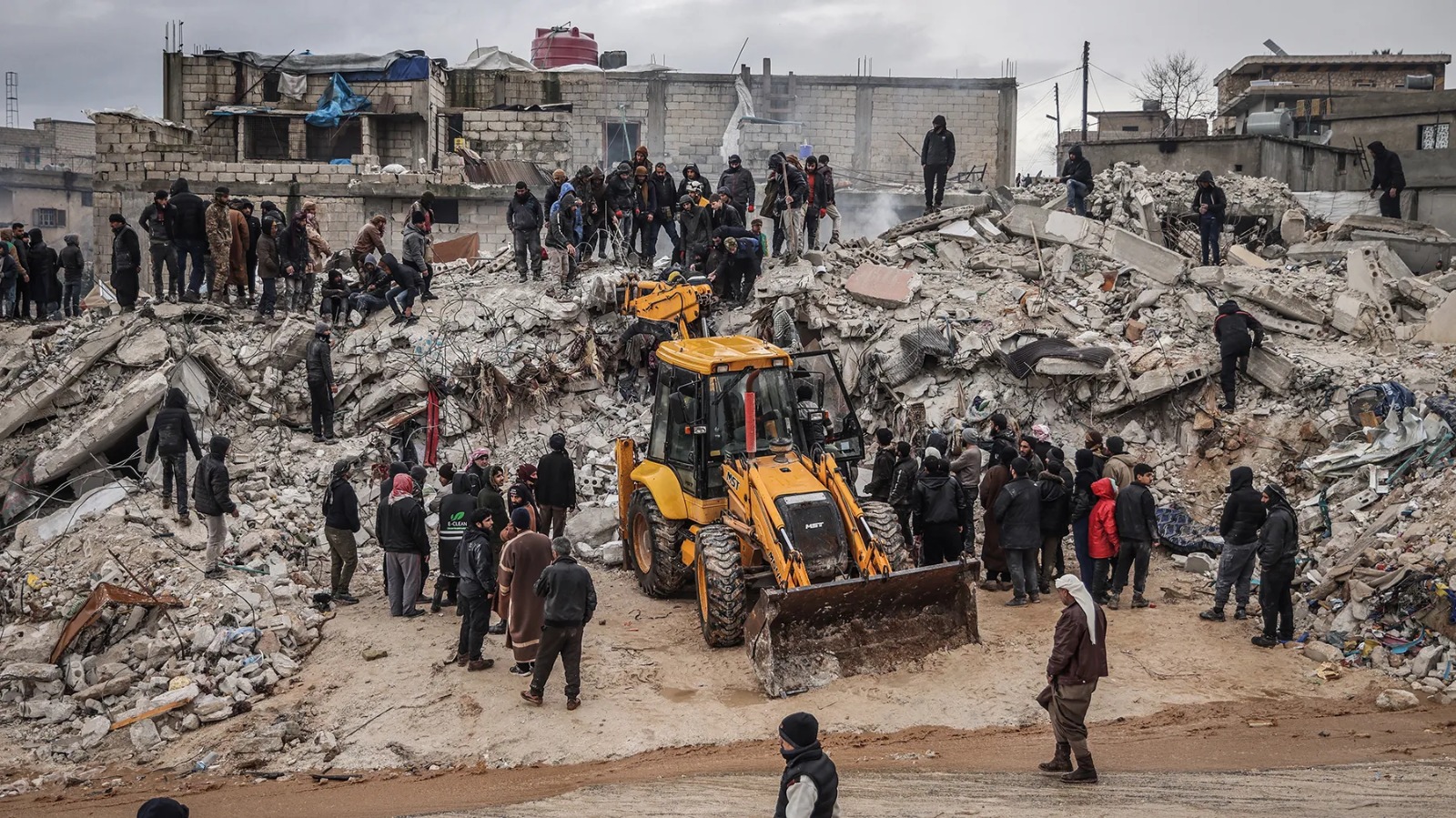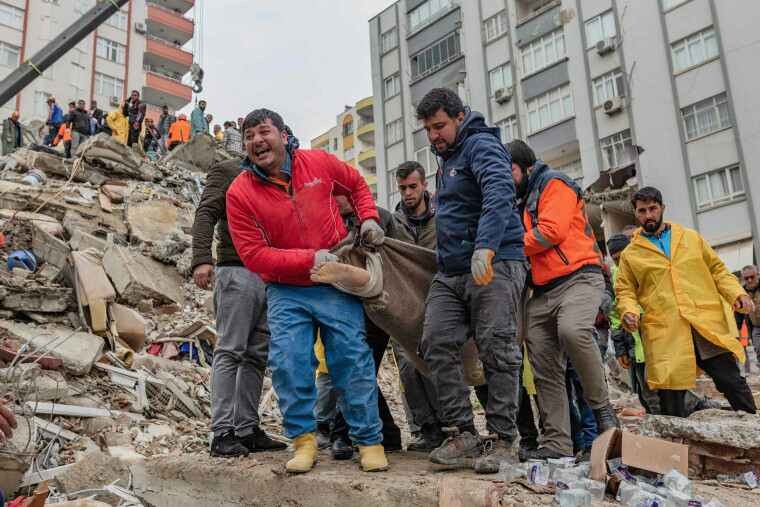More than 7,800 people have died due to a severe earthquake that struck southern Turkey and Syria on Tuesday. Rescuers were attempting to find survivors amid the wreckage of collapsed buildings while working against the clock in the harsh winter weather.
According to a U.N. official, thousands of youngsters could have perished.
Ten provinces in Turkey were placed under emergency rule by President Tayyip Erdogan. The deadliest seismic activity to strike Turkey since 1999 was responded to by authorities very slowly and inadequately, according to the people of many affected Turkish cities, who expressed their rage and sadness.
.jpg)
Did you read this?
"Not even a single person is present. We are buried in snow, without a home or anything else, "said Murat Alinak, whose family members are missing and whose house in Malatya collapsed. Where can I go? What should I do?
In Turkey and northern Syria, Monday's magnitude 7.8 earthquake, followed by an almost identical quake hours later, toppled thousands of structures, including hospitals, schools, and apartment buildings. Tens of thousands of people were injured, and countless people were left homeless.
Rescue teams had trouble getting to some of the worst-affected locations due to damaged roads, bad weather, a lack of supplies, and heavy equipment. There were fuel and energy shortages in many areas.
Residents combed through debris in a desperate search for survivors with little access to rapid assistance and occasionally without even the most essential tools.

Erdogan proclaimed ten Turkish regions' disaster zones and declared a three-month emergency, allowing the government to make new laws without consulting parliament and to hold or suspend rights and freedoms.
According to Mr Erdogan, who is running for re-election in three months, the government would open hotels in Antalya to temporarily give a home to anyone affected by the earthquakes.
Turkey's death toll increased to 5,894, according to Vice President Fuat Oktay. More than 34,000 people were hurt. According to the government and a rescue team northwest of the country, which insurgents control, the death toll in Syria was at least 1,932.
Adana in the west to Diyarbakir in the east, and Malatya in the north to Hatay in the south, are about 450 km (280 miles) and 300 km, respectively, of the impacted area, according to Turkish authorities.
Syrian officials have reported deaths as far south as Hama, around 250 kilometres from the epicentre.
Director General of the WHO Tedros Adhanom said in Geneva that "it is now a race against time." The likelihood of discovering survivors alive decreases with each minute and hour.

Rescue workers worked around the area day and night while families waited in agony by piles of debris and wreckage, clinging to the hope that friends, family members, and neighbours may be alive.
Rescue personnel were scarce in Antakya, the provincial seat of Hatay, which borders Syria, so locals had to pick their way through the rubble. Helmets, hammers, iron rods, and ropes were requested repeatedly.
The employees said they needed an excavator to dismantle the wall to access the room from the front.
Along with 9,000 militaries, more than 12,000 Turkish search and rescue workers are in the impacted regions. More than 70 nations provided rescue crews and other assistance.
However, the disaster's sheer size is frightening.
"The space is very large. This is something I've never seen before "At the airport in Adana, Johannes Gust from the German fire and rescue service commented as he loaded supplies onto a vehicle.
According to Turkey's Disaster and Emergency Response Management Authority, the earthquake left 20,426 people injured and 5,775 buildings demolished.
Two teams from U.S. Agency for International Development, each with 80 people and 12 dogs, are scheduled to land in Turkey on Wednesday morning to concentrate on urban search and rescue. They will then go to the province of Adiyaman in the southeast.

James Elder, a spokesman for UNICEF, told journalists in Geneva that thousands of children "may have died" due to the earthquake.
According to Elder, the most susceptible individuals were Syrian refugees in Turkey and northwest Syria.









